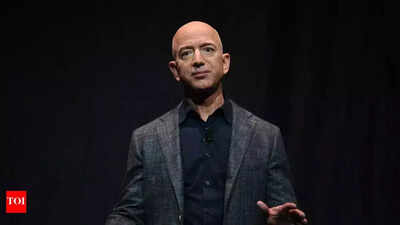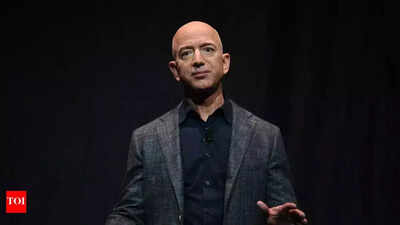Jeff Bezos’ Major Setbacks: How Failed Ventures Paved the Way for Amazon’s Success
Jeff Bezos, Amazon’s visionary leader, has faced numerous setbacks throughout his journey. Failures such as the Fire Phone, Crucible, and Haven highlight the challenges of innovation and market disruption. Investments in dot-com era ventures like Pets.com and Kozmo.com resulted in significant losses, demonstrating the risks inherent in pioneering new business models.
Challenges Faced by Jeff Bezos
Amazon’s path to becoming one of the world’s largest companies was not without its obstacles. Early on, Bezos faced skepticism from investors and the public about e-commerce’s potential. He struggled with limited resources and intense competition from traditional retailers. As Amazon expanded globally, Bezos encountered logistical and operational challenges in maintaining customer satisfaction and timely deliveries.
Amazon Fire Phone

The phone failed to gain traction, with large app developers avoiding it, and was eventually discontinued. Amazon wrote off $170 million worth of unsold goods. Despite this, Bezos considered it a ‘necessary failure’ along the innovation path.
Crucible (Video Game)
In 2020, Amazon launched ‘Crucible,’ its first AAA multiplayer video game. The game was marred by errors and failed to attract a significant player base. It was initially put back into closed beta and later cancelled. Although the development cost wasn’t disclosed, typical AAA games cost between $60-$80 million.
Haven (Healthcare Venture)
Amazon, JPMorgan Chase, and Berkshire Hathaway launched Haven in 2018 as a joint venture to transform American healthcare. However, the venture faced unclear objectives, leadership changes, and minimal progress. By early 2021, Haven quietly closed without launching any products.
Pets.com and Kozmo.com
During the dot-com bubble, Bezos invested in startups like Pets.com and Kozmo.com. Pets.com failed due to a flawed business model involving costly shipping and free delivery on heavy pet food. Kozmo.com’s promise of one-hour delivery proved unsustainable and ultimately led to its collapse in 2001.
Other Ventures
Other notable failures include Amazon WebPay, LivingSocial, Amazon Local Register, Askville, Amazon Destinations, and MyHabit. Each of these ventures demonstrated the challenges of entering new markets without clear advantages or innovation.
Lessons Learned
Despite these setbacks, Bezos maintained his focus on customer experience and innovation. Amazon’s eventual success in areas like cloud computing and fast delivery (through Prime) shows how earlier failures contributed to later successes. Bezos’ willingness to take risks and learn from failures has been crucial to Amazon’s evolution into a global technology leader.


